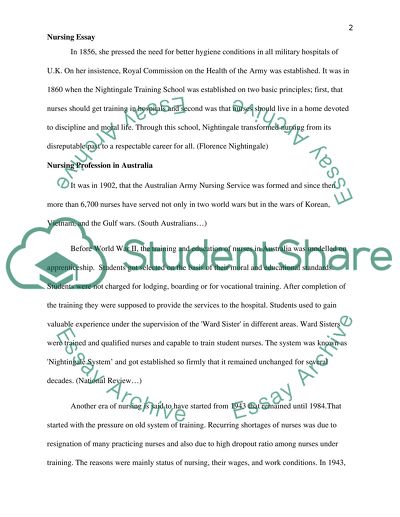Cite this document
(“Nursing Profession in Australia Essay Example | Topics and Well Written Essays - 1500 words”, n.d.)
Retrieved from https://studentshare.org/nursing/1418668-nursing-essay
Retrieved from https://studentshare.org/nursing/1418668-nursing-essay
(Nursing Profession in Australia Essay Example | Topics and Well Written Essays - 1500 Words)
https://studentshare.org/nursing/1418668-nursing-essay.
https://studentshare.org/nursing/1418668-nursing-essay.
“Nursing Profession in Australia Essay Example | Topics and Well Written Essays - 1500 Words”, n.d. https://studentshare.org/nursing/1418668-nursing-essay.


